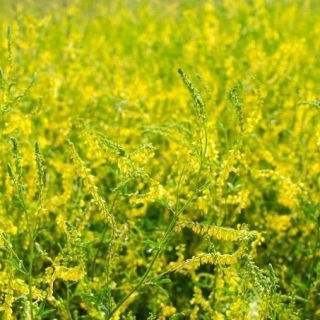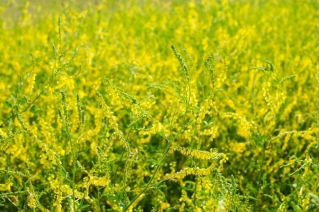- US Dollars ($)
- Euro (€)
- GB Pound (£)
- Chinese Yuan (元)
- Swedish krona (kr)
- Russian ruble (₽)
- Hong Kong dollar (HK$)
- Norwegian krone (kr)
- Indian rupee (₹)
- New Taiwan dollar (NT$)
- Danish krone (kr)
- Hungarian forint (Ft)
- Saudi riyal (SR)
- Bulgarian lev (лв)
- Czech koruna (Kč)
- Israeli shekel (₪)
- Indonesian rupiah (Rp)
- Japanese yen (¥)
- Korean won (₩)
- Malaysian ringgit (RM)
- Romanian leu (leu)
- Swiss franc (Fr.)
- Serbian dinar (din)
- Vietnamese đồng (₫)
- Ukrainian hryvnia (₴)
- Turkish lira (₺)
- Thai baht (฿)
- CAD Dollars ($)
- English
- German - Deutsch
- French - Français
- Spanish - Español
- Italian - Italiano
- Swedish - Svenska
- Russian - Русский
- Norwegian - Norsk
- Danish - Dansk
- Nederlands
- Estonian - Eesti keel
- Finnish - Suomalainen
- Hungarian - Magyar
- Latvian - Latviešu valoda
- Lithuanian - Lietuvių
- Portuguese - Português
- Chinese - 中文
- العربية - Arab-c
- Bulgarian - български
- Czech - Čeština
- Greek - Ελληνικά
- پارسی - Persian
- עברית - Abrit
- Croatian - Hrvatski
- Indonesian - Bahasa Indonesia
- Japan - 日本語
- Korean - 한국어
- Malay - Melayu
- Romanian - Română
- Slovak - Slovák
- Slovenian - Slovenščina
- Thai - ไทย
- Turkish - Türkçe
- Ukrainian - Українська
- Vietnamese - Tiếng Việt
- Categories
-
Seeds
-
Vegetable Seeds
-
Flower Seeds
-
- Ageratum, Flossflower seeds
- Alyssum seeds
- Amaranth Seeds
- Aquilegia, Columbine seeds
- Aster seeds
- Aubrieta Seeds
- Begonia seeds
- Bellis perennis, Daisy seeds
- Californian Poppy Seeds
- Campanula, Bellflower seeds
- Celosia, Cocksbomb seeds
- Centaurea, Cornflower seeds
- Chrysanthemum, Painted Daisy seeds
- Coleus seeds
- Convolvulus seeds
- Coreopsis seeds
- Cosmos seeds
-
- Datura seeds
- Dianthus, Carnation seeds
- Echinacea, Coneflower seeds
- Flower seed mixtures
- Forget me not seeds
- Foxglove seeds
- Gaillardia Seeds
- Gazania seeds
- Geranium, Pelargonium seeds
- Godetia seeds
- Gourd, Ornamental squash seeds
- Gypsophila, Baby's Breath seeds
- Hollyhock seeds
- Impatiens seeds
- Ipomoea, Morning glory seeds
- Calabash, Bottle Gourd seeds
- Larkspur, Delphinium seeds
-
- Limonium, Statice seeds
- Lobelia seeds
- Lupin, Lupine seeds
- Lychnis, Catchfly seeds
- Mallow Seeds
- Marigold, Tagetes seeds
- Milkweed Seeds
- Nasturtium seeds
- Nemesia seeds
- Nepeta, catmint seeds
- Nicotiana, Ornamental Tobacco seeds
- Nigella, Love in a mist seeds
- Pansy seeds
- Petunia and Surfinia seeds
- Phlox seeds
- Poppy seeds
- Primula, Primrose seeds
-
- Red Valerian, Centranthus Seeds
- Ricinus, Castor bean seeds
- Runner bean seeds
- Safflower seeds
- Salvia, Ornamental sage seeds
- Snapdragon Seeds
- Stock seeds
- Strawflower, Golden everlasting seeds
- Sunflower seeds
- Sweet pea seeds
- Tunbergia, Black-eyed Susan Vine seeds
- Verbascum, Mullein seeds
- Verbena seeds
- Veronica, Speedwell seeds
- Viola, Violet seeds
- Zinnia seeds
-
- Herb Seeds
- Sprouting Seeds
-
Flower Bulbs
-
Garden Equipment
-
At home
- Around home
-
Fertilizers
-
- All-purpose fertilizers
- Autumn and winter fertilizers
- Blueberry fertilizers
- Boxwood fertilizers
- Bulb plants' fertilizers
- Grass and lawn fertilizers
- Citrus plant fertilizers
- Compost
- Conifer fertilizers
- Dolomite and lime fertilizers
- Dry powder fertilizers
- Fertilizers for balcony and terrace plants
- Fertilizers for moss-infected lawns
- Fertilizers in pump sprayers
-
- Fertilizers in watering cans
- Fertilizers sticks
- Fertilizers with leaf shine
- Flowering plant fertilizers
- Fruit fertilizers
- Fruit tree fertilizers
- Garden plant fertilizers
- Gel fertilizers
- Geranium fertilizers
- Green plant fertilizers
- Herb fertilizers
- Home plant fertilizers
- Hydrangea fertilizers
- Lavender fertilizers
-
Yellow Sweetclover is a remarkable annual plant that combines both aesthetic appeal and practicality in the garden. Its intensely yellow flowers not only add a splash of colour but also attract bees and butterflies, supporting natural pollination processes. Renowned for its melliferous qualities, Yellow Sweetclover is highly valued by beekeepers as a late-season nectar source, thriving from July to October. With a high honey yield of 400-600 kg/ha, it becomes an indispensable element in any garden focused on ecology and sustainable development.
The long-blooming stems of Yellow Sweetclover can reach up to 100 cm in height. Its loose, funnel-shaped flower clusters create a unique spectacle while serving as a valuable herbal raw material used in treating skin conditions and throat inflammation. Additionally, the green parts of the plant are rich in nitrogen, making it an ideal green manure to enrich the soil for more demanding plants, such as cabbages.
Site Conditions
Yellow Sweetclover thrives best in sunny locations, which guarantees abundant flowering and healthy growth. Although not picky about soil, it prefers fertile, moderately moist substrates that are not too heavy. Such conditions allow it to fully develop its melliferous properties, making it an ideal choice for naturalistic gardens and wildflower meadows.
Growing Tips
Growing Yellow Sweetclover is incredibly straightforward, making it an ideal choice for both novice and experienced gardeners. Sowing can commence as early as spring, and thanks to its adaptable nature, this plant requires no special care. However, regular watering during dry spells is recommended to ensure optimal growth and flowering conditions.
Usage
Yellow Sweetclover is a versatile plant with numerous applications. Besides its decorative and melliferous roles, its green parts make excellent green manure, enriching the soil with nitrogen. The plant is also used in herbal medicine to alleviate skin inflammations and throat conditions. It is recommended for creating naturalistic gardens and as a key element in wildflower meadows that support biodiversity.
Resistance to Diseases
Yellow Sweetclover is characterised by good resistance to diseases, which means its cultivation does not require the use of chemical plant protection products. Its natural resilience allows it to withstand various weather conditions, making it an ideal choice for eco-friendly gardens.
Why Buy from Garden Seeds Market?
Purchasing Yellow Sweetclover seeds from Garden Seeds Market ensures the highest quality and satisfaction. Our seeds undergo rigorous quality testing, ensuring high germination rates. Numerous positive reviews from satisfied customers attest to the reliability of our products. We offer fast and secure delivery as well as attractive promotions for regular customers. By choosing Garden Seeds Market, you support quality and professionalism.
The package contains 100 g of seeds. The packaging includes information on cultivation guidelines and the sowing expiration date.
New


My account
Store
Customer information
Information

© -2025 Gardenseedsmarket.




